Books
Christopher J. Yates’s Top Five Puzzle Novels
For crime writer Christopher J. Yates, there seems to be a clear relationship between types of writing, such as crime fiction, and puzzles; in both cases we find that we must piece together seemingly disjointed jigsaw pieces until the bigger picture is revealed. In light of this, and of Christopher’s fascination with puzzles, we asked him to tell us about his favourite ‘puzzle novels’, how they inspire his own work and why they continue to keep him guessing.
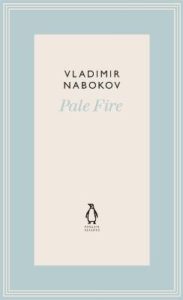 ‘Pale Fire by Vladimir Nabokov
‘Pale Fire by Vladimir Nabokov
Nabokov’s novel Pale Fire is a treasure chest full of tantalising puzzles, centred ostensibly around a commentary on a 1,000 line poem written by the fictional John Shade. However, we have only 999 lines of the poem, as Shade was shot by an assassin before he could finish. All this is related by the narrator and poetry analyst, Charles Kinbote. But who is Kinbote? What was the last line going to be? And how are we supposed to read the novel? The poem comes first, followed by Kinbote’s line-by-line commentary, but there are also footnotes at the end of the tale. Should we read it in order? Or should we jump between the poem and its commentary, all the while disappearing down the footnote rabbit-holes? This is a novel you could read and re-read scores of times over – and I strongly urge you to do so; you’ll find something new every time. It’s by far my favourite puzzle novel, and a major inspiration for own my book, Black Chalk.
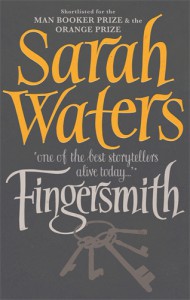 Fingersmith by Sarah Waters
Fingersmith by Sarah Waters
The plot of Fingersmith is as carefully and cunningly constructed as a Chinese puzzle box. The story is intricate and maze-like with so many twists and turns that a brief summary is almost impossible. Set in Victorian London, it is a crime novel about orphans, swindlers, deception, desire, pornography, manipulation, betrayal… In short, it is a feast of a plot to be consumed at high-speed. The balance between Waters’s reveals and her deceptions is so finely balanced that, one misstep on the writer’s part, and the plot would collapse into a jelly-like mess. But Waters never puts a foot wrong. Not only is Fingersmith an entertaining novel, it is something to behold for anyone who enjoys marveling at the intricate work of a master plot-builder.
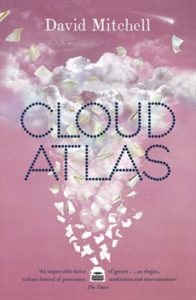 Cloud Atlas by David Mitchell
Cloud Atlas by David Mitchell
Cloud Atlas consists of six interwoven stories which jump around geographically and across vast periods of time: a Pacific island in 1850, California in 1975, post-apocalyptic Hawaii… The New York Times described its structure as being akin to a ‘perfect crossword puzzle’ – in short, challenging but fun. The main characters from the different stories and eras all share the same birthmark, suggesting they are perhaps reincarnations of one another. As his stories shift through time and across continents, Mitchell explores the universality of human nature. Rarely in literature has such a topic been examined in so entertaining manner and with such careful attention to storytelling.
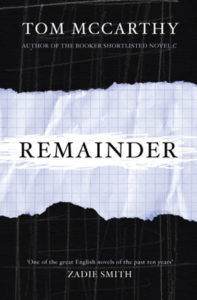 Remainder by Tom McCarthy
Remainder by Tom McCarthy
The puzzle novel is always in danger of provoking frustration. Remainder is a book that some readers might find themselves throwing against the wall before long. But it is a work of bewildering beauty. An unnamed narrator has suffered a traumatic event, an accident he can’t remember. Having been in a coma and now disconnected from reality, he uses his £8.5 million legal settlement from the accident to try to reconnect with his sense of being human. Remainder is a puzzle of a book that will never provide you with easy answers (or any answers at all, some might complain), but somewhere between its simply-stated lines there lurks a sense of deep profundity.
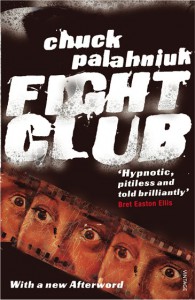 Fight Club by Chuck Palahniuk
Fight Club by Chuck Palahniuk
The unnamed narrator of Fight Club is a depressed insomniac who fakes serious diseases so that he can gain the comfort he seeks in life from support groups. This means that, right from the start, we know we’re in the hands of an unreliable narrator. However, Palahniuk twists this device so gloriously that the book demands instant re-reading. Upon doing so, you discover how cleverly he has pieced together his puzzle. Everything is not what you think. And yet everything works. It’s like one of those optical illusions where you shift your gaze slightly and a whole new picture assembles in front of your eyes. But do make sure you experience this story in book form (though it is a pretty good movie as well).’
Many thanks to Christopher for his time! His novel, Black Chalk, is available to buy now in paperback and e-book formats.
What are the most puzzling works of fiction that you’ve ever read? Let us know in the comments below…

Please note: Moderation is enabled and may delay your comment being posted. There is no need to resubmit your comment. By posting a comment you are agreeing to the website Terms of Use.